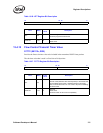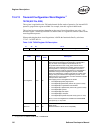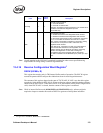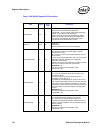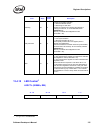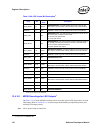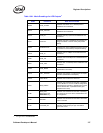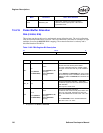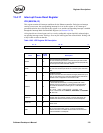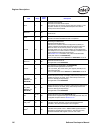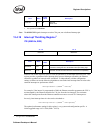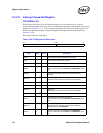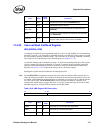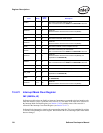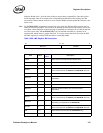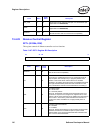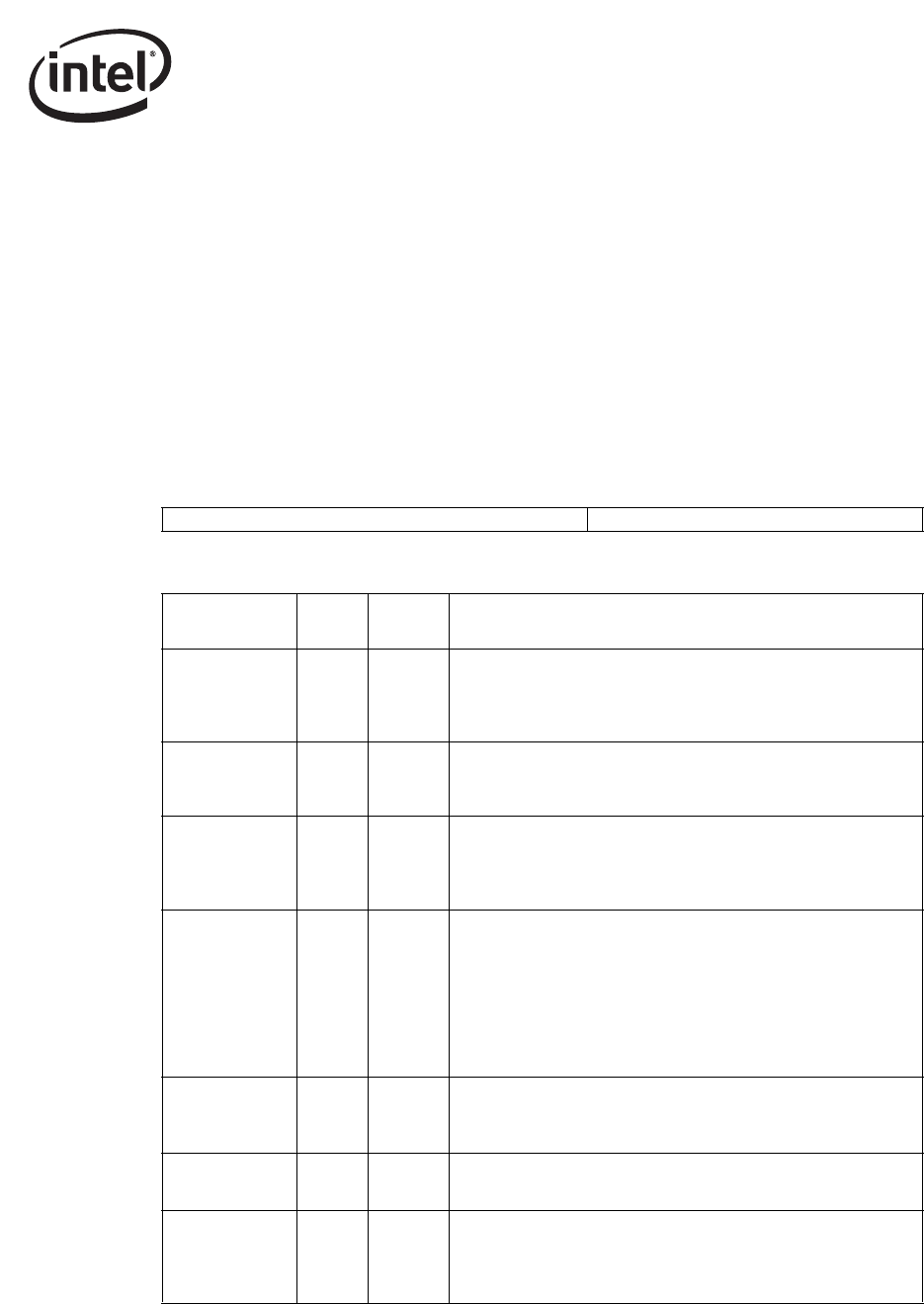
Software Developer’s Manual 289
Register Descriptions
13.4.17 Interrupt Cause Read Register
ICR (000C0H; R)
This register contains all interrupt conditions for the Ethernet controller. Each time an interrupt
causing event occurs, the corresponding interrupt bit is set in this register. A PCI interrupt is
generated each time one of the bits in this register is set, and the corresponding interrupt is enabled
through the Interrupt Mask Set/Read IMS Register (see Section 13.4.20).
All register bits are cleared upon read. As a result, reading this register implicitly acknowledges
any pending interrupt events. Writing a 1b to any bit in the register also clears that bit. Writing a 0b
to any bit has no effect on that bit.
Table 13-63. ICR Register Bit Description
31 - 17 16 14 0
Reserved ICR Bits
Field Bit(s)
Initial
Value
Description
TXDW 0 0b
Transmit Descriptor Written Back
Set when hardware processes a transmit descriptor with the RS
bit set (and possibly IDE set). If using delayed interrupts (IDE set),
the interrupt occurs after the timer expires.
TXQE 1 0b
Transmit Queue Empty
Set when the last descriptor block for a transmit queue has been
used.
LSC 2 0b
Link Status Change
This bit is set each time the link status changes (either from up to
down, or from down to up). This bit is affected by the internal link
indication when configured for internal PHY mode.
RXSEQ 3 0b
Receive Sequence Error
In TBI mode/internal SerDes
1
, incoming packets with a bad
delimiter sequence set this bit. In other 802.3 implementations,
this would be classified as a framing error. A valid sequence
consists of:
idle → SOF → data → pad (opt) EOF → fill (opt) → idle.
This is a reserved bit for the 82541xx, 82547GI/EI, and 82540EP/
EM. Set to 0b.
RXDMT0 4 0b
Receive Descriptor Minimum Threshold Reached
Indicates that the minimum number of receive descriptors are
available and software should load more receive descriptors.
Reserved 5 0b
Reserved
Reads as 0b.
RXO 6 0b
Receiver Overrun
Set on receive data FIFO overrun. Could be caused either
because there are no available receive buffers or because PCI
receive bandwidth is inadequate.



